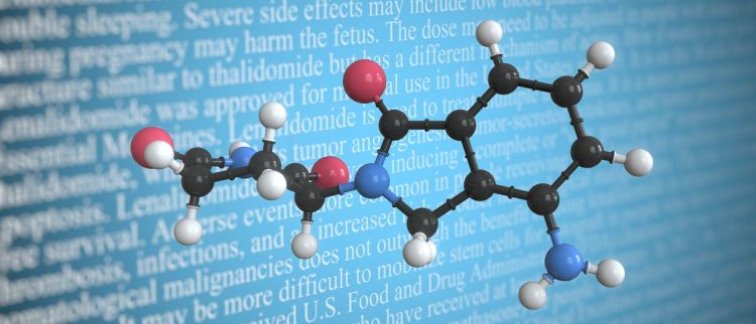Myelodysplastic Syndromes (MDS) are a group of diverse bone marrow disorders in which the bone marrow does not produce enough healthy blood cells. MDS is considered a type of cancer caused by mutations in the DNA of hematopoietic stem cells, which give rise to all types of blood cells. These mutations lead to the production of abnormal cells that often die sooner than healthy cells or become dysfunctional, resulting in a shortage of one or more types of blood cells.
Novel Predictors of Response
A study led by Prof. Arjan van de Loosdrecht and based on clinical and translational work at Cancer Center Amsterdam has now identified novel predictors of response to a medicine used to treat lower-risk MDS (lenalidomide), representing a significant step towards personalized medicine for patients with these disorders.
In a randomized phase-II multicenter clinical trial, the research team evaluated the efficacy and safety of lenalidomide in two cohorts of patients: one receiving lenalidomide only, and the other lenalidomide in combination with two other medicines (ESA and G-CSF), if the lenalidomide was not working well by itself.
After following 184 patients for about 6 years, the HOVON89 study found that about 40% of the patients in both groups showed better blood cell counts, but the addition of ESA and G-CSF did not significantly improve outcomes compared to lenalidomide alone. Using extensive profiling by flow cytometry and next-generation sequencing, the researchers also found clues in the patients' blood and genes that were associated with a much better response to lenalidomide.
“Importantly, the presence of SF3B1 mutations, deletion 5q status, and specific lymphocyte and progenitor B-cell percentages, along with the overall mutation burden, were identified as predictive biomarkers for hematologic improvement in response to lenalidomide,” says Arjan van de Loosdrecht, Professor of Hematology at Amsterdam UMC.
Changing the Field of Treatment
Prof. Van de Loosdrecht underscored the potential these insights have to significantly optimize therapeutic strategies for patients based on their specific genetic and phenotypic profiles.
“These results will change the field of treatment,” says Arjan. “Personalizing treatment plans – also called precision medicine – maximizes the chances of success for each patient, reducing the trial-and-error process often associated with finding the right treatment.”
Prof. Van de Loosdrecht and his team are now working to implement these findings into clinical practice. This will allow healthcare providers to prioritize patients who may benefit the most with lenalidomide treatment, potentially improving their outcomes and quality of life. Conversely, patients less likely to benefit can be spared the time, expense, and potential side effects, and instead be offered alternative therapies.
Arjan concludes: “It has been a monster job - but a very impactful result.”
For more information, contact Arjan van de Loosdrecht, or read the publication:
Van de Loosdrecht, A.A., et al. (2024) Determinants of lenalidomide response with or without erythropoiesis-stimulating agents in myelodysplastic syndromes: the HOVON89 trial. Leukemia (2024). https://doi.org/10.1038/s41375-024-02161-6.
Researchers involved at Cancer Center Amsterdam:
Arjan van de Loosdrecht
Marisa Westers
Canan Alhan
Eline Cremers
Carolien Duetz
G. J. Ossenkoppele
J. J. W. M. Janssen
B. J. Biemond
Funding
KWF (Dutch Cancer Foundation) provided financial support for data management. This study was supported by BMS/Celgene and Roche.
Text by Laura Roy
This article was created for Cancer Center Amsterdam.
Follow Cancer Center Amsterdam on LinkedIn & X / Twitter.
© 2024 New Haven Biosciences Consulting – All rights reserved.

